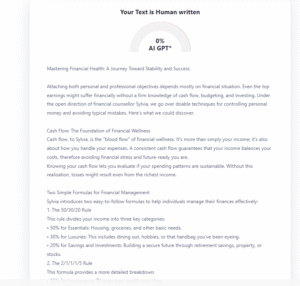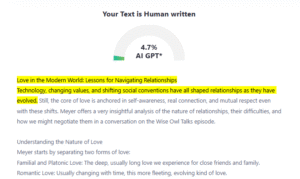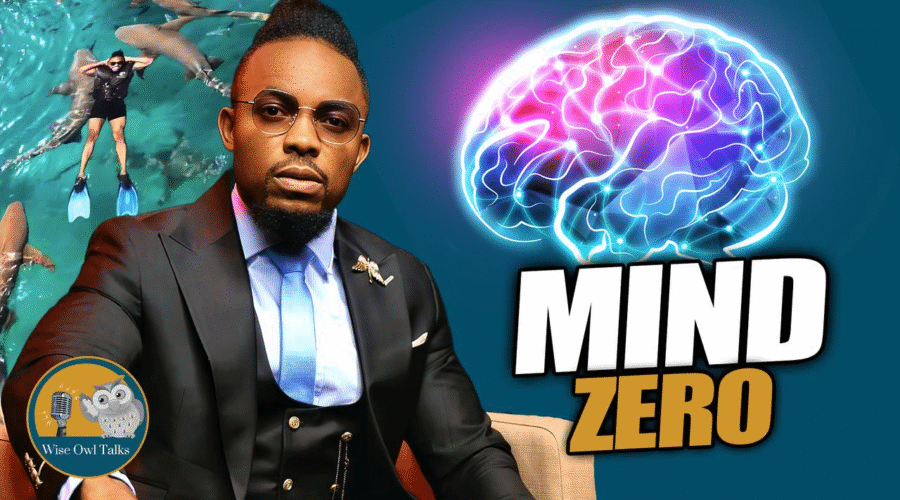Does Money Make You Happy? The Million-Dollar Question
Many people believe that success, wealth, or worldly possessions will bring them happiness. Scroll through social media and you’ll see carefully chosen snapshots of glamorous lives—luxury trips, perfect relationships, big wins—that make us feel as if we’re missing out. But pause for a moment and ask yourself: does money make you happy, or is happiness something deeper—an inner state shaped by gratitude and dreams?
Wise Owl Talks began with this very question in our first episode, featuring Meyer, a man who has traveled to 154 countries. His insights on happiness, gratitude, and the pursuit of dreams continue to resonate. Let’s step into his wisdom together.
The Million-Dollar Question
Imagine this: someone hands you a million dollars. The catch? You only have five days to live. Would you take it?
Almost everyone says no. Why? Because in that moment, we realize something simple yet profound—money may ease problems, but it doesn’t define happiness. Financial stability can bring comfort, yes. But lasting joy? That comes from somewhere else.
Happiness Is a Daily Choice
Meyer reminds us that happiness isn’t a destination we reach; it’s a choice we make every day. A dream vacation, a new car, a bigger home—they spark excitement, but only for a while. Real happiness is in the process, not just the prize.
Think of someone learning to play the ukulele. The joy isn’t only in mastering the instrument; it’s in every small win—strumming a new chord, performing for a friend, or simply enjoying the sound. Happiness works the same way. It’s found in progress, not perfection.
Social Media’s Illusion
Here’s the problem with social media: it shows us polished highlight reels. We scroll, compare, and sometimes end up feeling inadequate. But that’s not the full story.
To truly answer the question “does money make you happy?”, we have to turn inward. Real joy doesn’t come from likes or luxury posts. It comes from savoring small moments—sharing laughter with loved ones, following a passion, or being present in simple daily rituals.
Dreams Require Action
Dreams aren’t just wishes. They demand commitment. Meyer says that achieving a dream is about small, consistent steps.
A dancer doesn’t improve in a day but through daily practice, patiently building skill. Whether it’s learning a language, starting a business, or planning world travel—the process itself is where happiness lives.
Gratitude: The Secret Ingredient
Meyer begins his mornings with gratitude. He appreciates simple blessings—fresh water, a safe roof, the chance to learn. Many of us forget this while chasing the next big goal.
Gratitude doesn’t mean giving up ambition. Instead, it grounds us, keeps us from frustration, and lets us enjoy the journey. It’s the lens that turns ordinary days into extraordinary ones.
So, Does Money Make You Happy?
Money helps solve problems, but it doesn’t promise fulfillment. Even the wealthy often struggle with emptiness. Happiness isn’t bought—it’s cultivated.
True happiness is an inner mindset. It grows when we nurture relationships, embrace gratitude, and celebrate personal growth.
Balancing Dreams and Gratitude
Here’s a common concern: if we’re grateful, will we stop dreaming? Not at all. Dreams push us forward; gratitude lets us enjoy today. Together, they create balance.
Take the example of planning a trip to Paris. Instead of feeling restless until you arrive, you can savor the journey—saving for tickets, planning the itinerary, imagining the adventure. Gratitude turns every step into joy.
Final Reflection
So, does money make you happy? The truth is clear: money brings comfort, but not contentment. Happiness is found in gratitude, in dreams pursued with purpose, and in the choice to enjoy the little moments along the way.
This very realization is what sparked my journey. After recording that very first conversation with Meyer—just on my phone—I was inspired to start Wise Owl Talks here in Malaysia. And from that seed, a global conversation on wisdom and wellness began.
🦉 Listen to the full episode of Wise Owl Talks: Dreams, Gratitude, and the Pursuit of Happiness
🎧 Tune in now: Wise Owl Talks Episode Link














